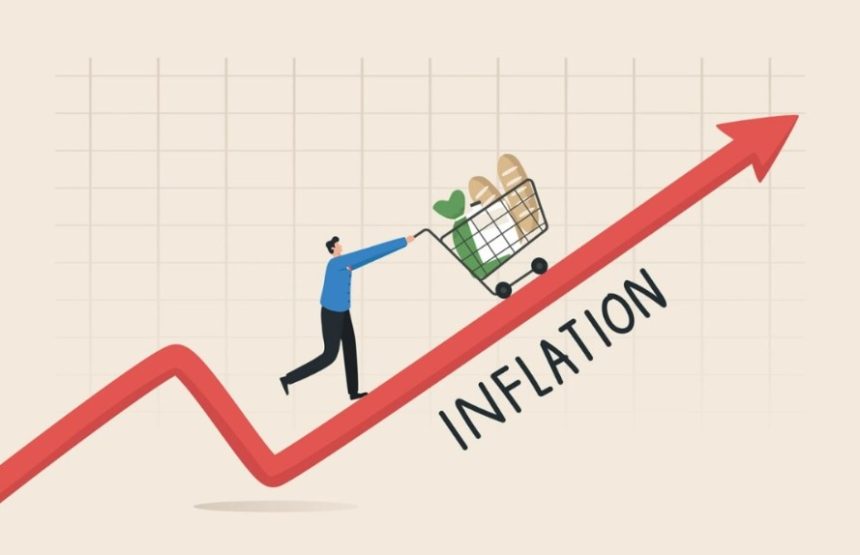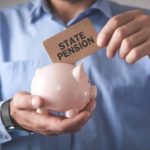UK Inflation Rate Holds at 3.8% in August, Pressures on Household Budgets Continue
Affectation in the UK remained unchanged in August, staying at a 19-month high of 3.8, according to the sanctioned numbers reveal.
The stability comes as homes continue to face mounting costs, and the Bank of England is anticipated to maintain interest rates when it meets this Thursday.
Numbers released by the Office for National Statistics( ONS) on Wednesday show the consumer prices indicator holding steady, corresponding to July’s rate and economists’ prognostications.

Air fares rose more sluggishly than last time, but costs at cafes, hospices, and energy for buses climbed further.
The core rate of inflation, which removes the volatility of energy and food volatility dropped slightly to 3.6, in line with expectations.
Meanwhile, food and drink prices increased from 4.9 in July to 5.1 in August, meaning a supermarket shop that cost £ 100 last time would now reach£ 105.10. ONS chief economist Grant Fitzner explained:
“After last month’s increase, annual inflation was unchanged in August as various price movements offset each other.
The cost of airfares was the main downward driver this month, with prices rising less than a year ago, following the large increase in July linked to the timing of the summer holidays.
Breaking: UK inflation remains 3.8% — 2 months in a row, joint-highest since Jan 2024.
Still far higher than France (0.8%) and Germany (2.1%)
Starmer promised lower bills.
Food climbing again: 5.1%. pic.twitter.com/MmBMZTaCKJ
— Jamie Jenkins (@statsjamie) September 17, 2025
This was offset by a rise in prices at the pump and the cost of hotel accommodation falling less than this time last year.
Food price inflation climbed for the fifth consecutive month, with small increases seen across a range of vegetables, cheese, and fish items.”
Vegetables, milk, cheese, and fish saw price hikes, while bread, cereals, and oils became slightly cheaper.
Kris Hamer, director of insight at the British Retail Consortium, highlighted the strain on families: “Households across the country are noticing the increasing cost of their weekly shop.
Retailers are doing everything they can to deliver great value for their customers, but are unable to absorb the £7bn in costs they have been landed with this year, thanks to rising costs of national insurance, higher NLW, and a new packaging tax.
The chancellor can help turn the tide at the budget by delivering a meaningful business rates reduction, with no shop paying more as a result.
If the government instead chooses to burden the industry with more costs, then it will be households who feel the pinch as they go about their weekly shop.”
The 3.8% figure remains significantly above the Bank of England’s 2% target. Analysts suggest this cements expectations that interest rates will stay high for the remainder of the year.
Chancellor Rachel Reeves commented: I know families are finding it tough and that for many the economy feels stuck. That’s why I’m determined to bring costs down and support people who are facing higher bills.
“Through our Plan for Change, we are taking action, raising the national living wage, extending the £3 bus fare cap, and expanding free school meals to put more money in people’s pockets while we work to build a stronger, more stable economy that rewards hard work.”
The UK now has the highest inflation rate among G7 nations. The US, Canada, France, Italy, and Germany all reported lower inflation in August.
Alice Haine, personal finance analyst at Bestinvest by Evelyn Partners, added: “Inflation held steady in the 12 months to August, remaining at 3.8%, offering little relief for cash-strapped households still grappling with overstretched budgets.
Persistent inflation is also unwelcome news for Chancellor Rachel Reeves as she prepares for her autumn budget.
Persistently high inflation mixed in with sluggish economic output and a cooling jobs market only adds to the pressure as she considers which taxes she may target to plug the black hole in the public finances.”
The autumn budget, due on 26 November, is expected to introduce tax increases to address the UK’s fiscal challenges.
Nicholas Hyett, investment manager at the Wealth Club, said: “Overall inflation is stuck at nearly twice the Bank of England’s target rate.
For poorer consumers, the effective rate is probably higher still, since food accounts for a larger proportion of their total spending and food prices have risen 5.1% year-on-year.
Stubbornly high inflation means it’s unlikely that the Bank of England can bail out the economy with cuts.
That is doubly bad news for the government, which desperately needs either growth to pick up or rates to come down to free up some financial headroom.”
The steady 3.8% inflation rate signals continued financial pressure for households, particularly on food and fuel, with little relief expected before the Bank of England and government policy interventions.






